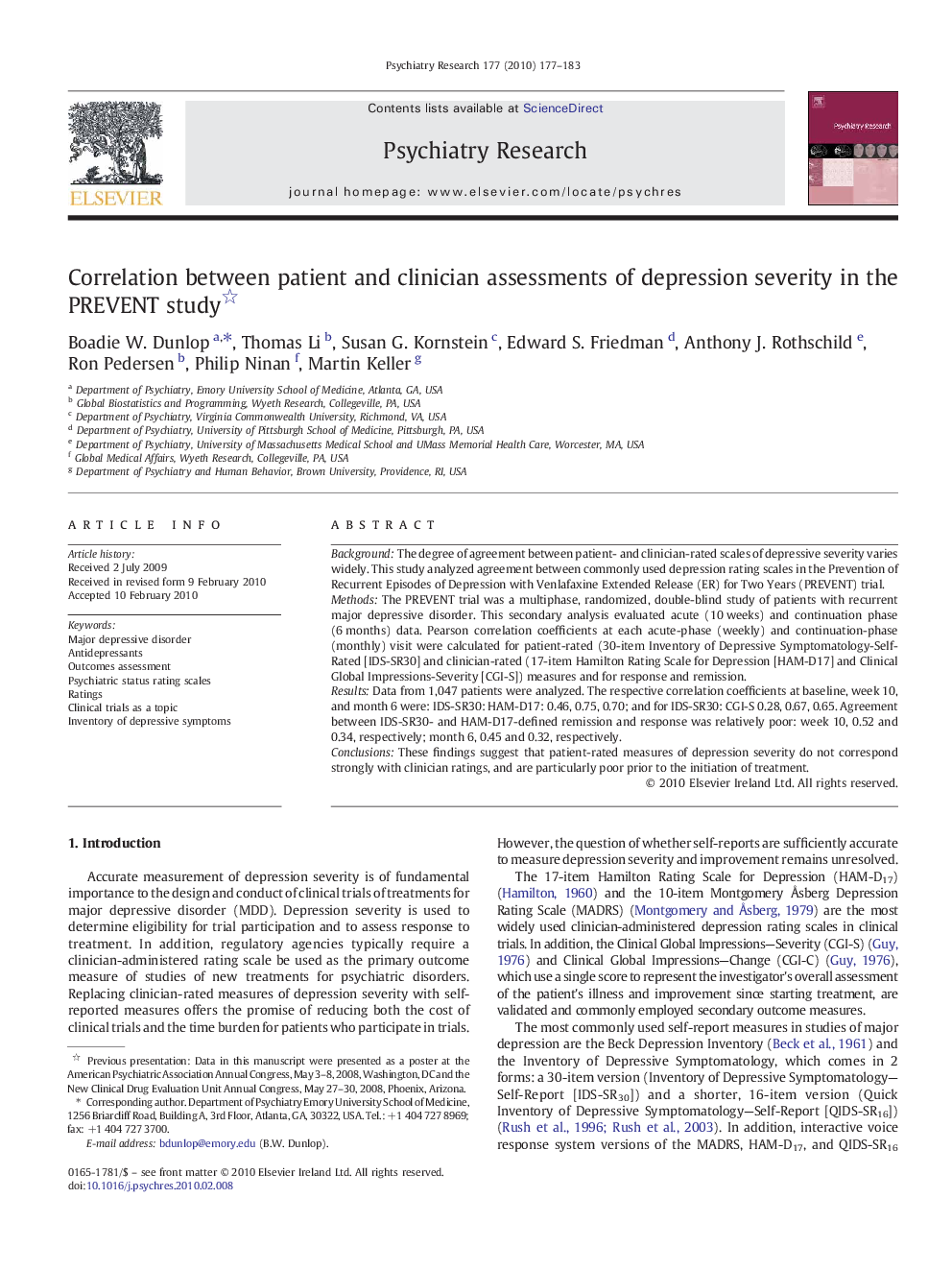| Article ID | Journal | Published Year | Pages | File Type |
|---|---|---|---|---|
| 332740 | Psychiatry Research | 2010 | 7 Pages |
BackgroundThe degree of agreement between patient- and clinician-rated scales of depressive severity varies widely. This study analyzed agreement between commonly used depression rating scales in the Prevention of Recurrent Episodes of Depression with Venlafaxine Extended Release (ER) for Two Years (PREVENT) trial.MethodsThe PREVENT trial was a multiphase, randomized, double-blind study of patients with recurrent major depressive disorder. This secondary analysis evaluated acute (10 weeks) and continuation phase (6 months) data. Pearson correlation coefficients at each acute-phase (weekly) and continuation-phase (monthly) visit were calculated for patient-rated (30-item Inventory of Depressive Symptomatology-Self-Rated [IDS-SR30] and clinician-rated (17-item Hamilton Rating Scale for Depression [HAM-D17] and Clinical Global Impressions-Severity [CGI-S]) measures and for response and remission.ResultsData from 1,047 patients were analyzed. The respective correlation coefficients at baseline, week 10, and month 6 were: IDS-SR30: HAM-D17: 0.46, 0.75, 0.70; and for IDS-SR30: CGI-S 0.28, 0.67, 0.65. Agreement between IDS-SR30- and HAM-D17-defined remission and response was relatively poor: week 10, 0.52 and 0.34, respectively; month 6, 0.45 and 0.32, respectively.ConclusionsThese findings suggest that patient-rated measures of depression severity do not correspond strongly with clinician ratings, and are particularly poor prior to the initiation of treatment.
